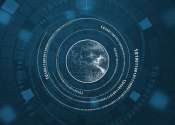The complex ethics of reopening America
Since the pandemic reached U.S. shores, public health experts and government officials have stressed aggressive social distancing policies in order to "flatten the curve" and reduce the spread of COVID-19 and prevent the ...
May 27, 2020
0
0








